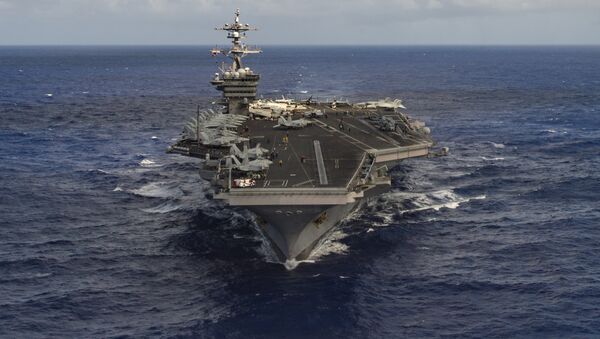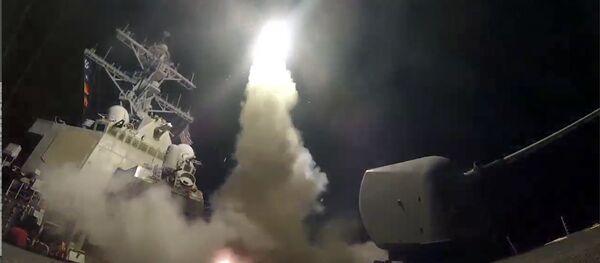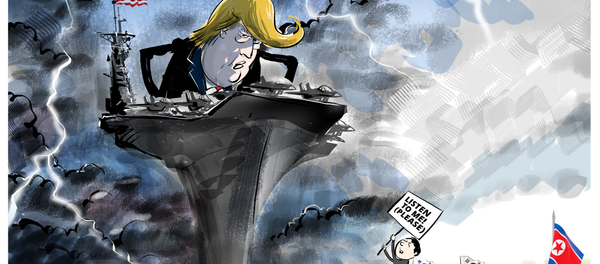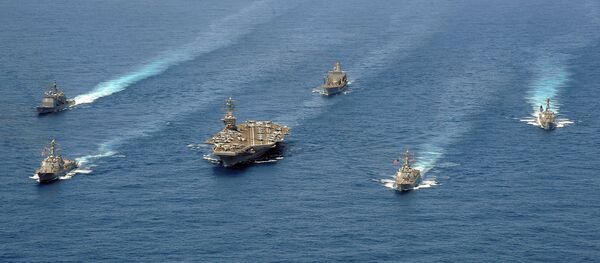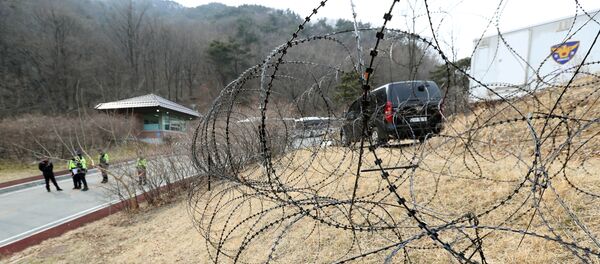Commenting on the carrier group's deployment, and on whether the Trump administration really has the audacity to attack Pyongyang and launch a full-blown military conflict, Radio Sputnik commentator Vladimir Filippov suggested that the question worth asking now is "is Trump's policy really that unpredictable?"
Now, Filippov wrote, "everyone is waiting to see what will happen next. Will Trump repeat the Syrian scenario? That option includes several components: the strike itself, a loud media campaign [supporting it], 'demonstrations of solidarity' among the US's NATO allies, statements in the UN Security Council, and support from the US Congress. All but the last have already been assured."
"How unpredictable is Trump's policy? If one were to ignore US realities, it may indeed seem that the president is eccentric and unpredictable," the journalist noted. "In reality that's not the case. Trump's actions betray a dependence on the opinions of the Washington establishment. As a result, he will be forced – on some issues partially, in others completely, to approve decisions which have been imposed on him. The king's entourage makes the king. And Trump does not want to be king for a day."
Therefore, the observer warned, "an attack against North Korea cannot be excluded. Trump has already launched a 'countdown', telling Beijing that 'if China is not going to solve North Korea, we will.' Washington needs to finally show Moscow, and especially Beijing, who's boss…"
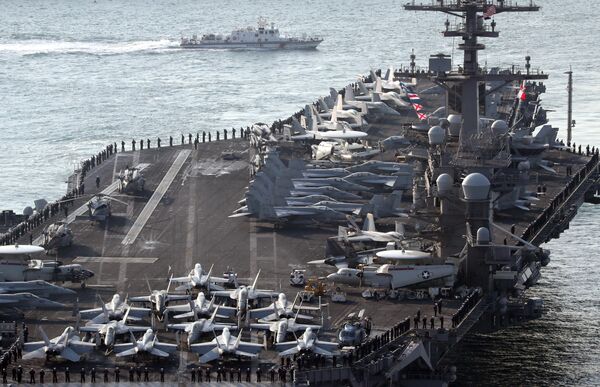
Accordingly, the journalist stressed that if Beijing is unable to press Pyongyang to back down on its nuclear weapons, the US may indeed move to push forward with a military option.
"The consequences of such a step would be unpredictable. For example, many experts cannot rule out the possibility of a North Korean response. Of course, their capabilities next to the US are insignificant. The US will not be affected. But what about South Korea? Who can guarantee that Kim Jong-un will not try to implement the doctrine of 'limited nuclear war', so beloved by US military planners?"
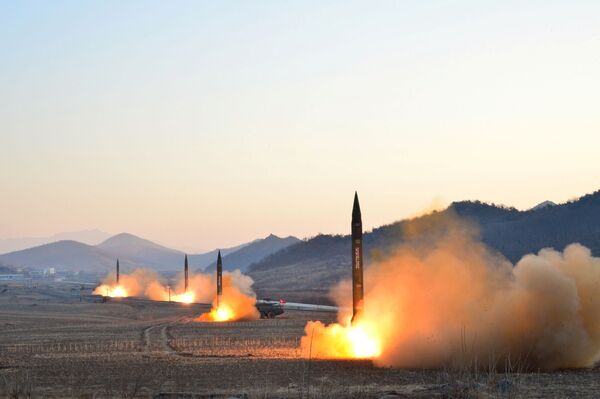
"In any case, we'll soon find out," Filippov wrote. "April 15 is the anniversary of the birth of Kim Il Sung, North Korea's founder. And new launches of North Korean ballistic missiles are unlikely to be kept waiting."
Speaking to Sputnik China, Konstantin Asmolov, senior export at the Moscow-based Center for Korean Studies, stressed that the fact that Presidents Trump and Xi couldn't come up with a common position on North Korea during their meeting in Mar-a-Lago last week was a serious problem.
"At their meeting, Xi Jinping and Trump said that the two sides recognized the seriousness of the North Korean threat, and recognized the complexity of the situation. That's it. This indicates that Beijing and Washington have serious disagreements regarding the question of what to do and who was to blame," Asmolov suggested.
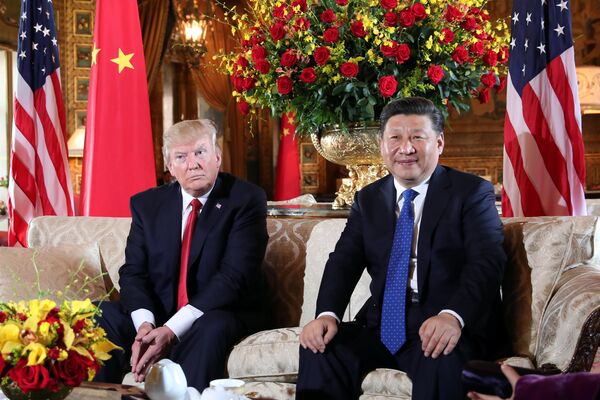
Furthermore, the expert said, the fact that the US carried out its attack on Syria before an investigation on who was responsible for the chemical attack in Homs could even begin was a serious problem. "This is not appealing to many in Asia. After the missile strike on Syria, even South Korean authorities began saying that if the US are considering a preventative strike, they should at least agree on it with Seoul."
Nonetheless, experts speaking to Sputnik China said that the fact that the US sent its carrier strike group to Korea immediately following Trump's summit with Xi indicates that Beijing probably did not succeed in getting the US to agree to hold direct talks with Pyongyang. The current situation, experts warned, means a new spiral of tensions in the region which could quickly escalate into military conflict.
On Monday, North Korea's Foreign Ministry issued a statement warning that the US carrier strike group's deployment showed that the US's "reckless moves for invading" had "reached a serious phrase," adding that Pyongyang would defend itself against such "reckless acts of aggression."
Konstantin Asmolov warned that under such circumstances, a single mistake could lead to military conflict. "Tensions are rising. The likelihood of some sort of military conflict actually starting has grown tremendously. It's most likely that Pyongyang will not be the one to initiate it, since they would take actions only under circumstances of abject despair, and this is not yet visible."
US actions, according to the analyst, have also reached a new, dangerous level. "The US is openly saying that all options are being discussed, from the assassination of Kim Jong Un, to preventative strikes, to the deployment of nuclear weapons in South Korea. Before Trump, all of this was probably discussed in narrow circles among the US military and political leadership, but under Trump they have begun to talk about it openly."

